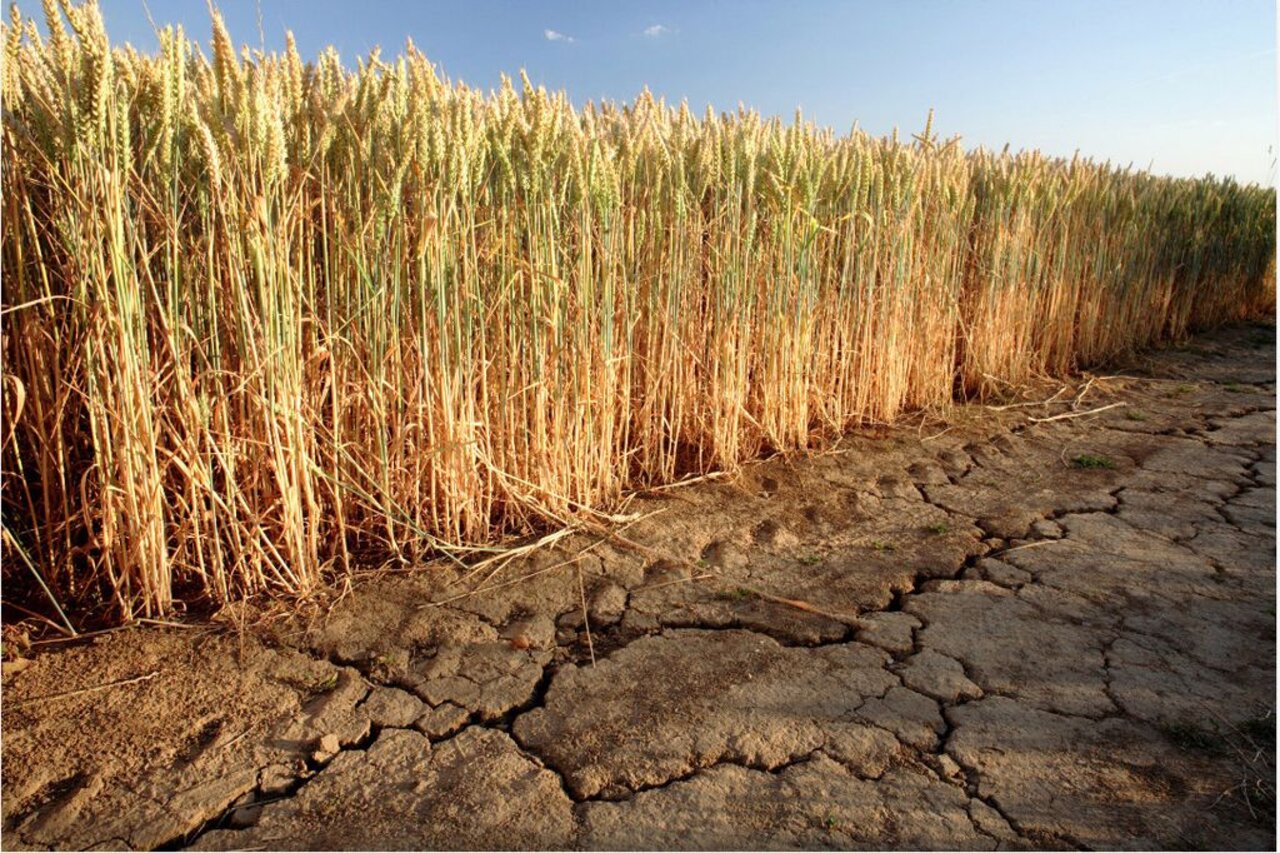Project
Support of weather insurances - is this the answer to extreme weather events?

Quantitative analysis of government support for insurance against systemic weather risks and its effects on competitiveness and climate adaptation strategies in agriculture
Droughts, floods, hail and heavy rainfalls: extreme weather events can lead to severe damages in the agricultural sector. It is therefore important for farmers to protect themselves against weather damage that could endanger their livelihood.
Background and Objective
Farmers can choose between different risk-management measures. In addition to on-farm approaches (e.g. choice of crop varieties, diversification), insurance coverage also plays an important role.
However, economically viable insurances do not exist for all weather events. This applies in particular to weather events which do not occur on a regular basis, but affect many farmers at the same time. Nationwide droughts or floods which cover a large area are two examples for these systemic risks.
A systemic weather risk can lead to extremely expensive insurance fees for farmers and to little or no insurance being offered at all. A lack of drought insurances in Germany is a current example for this issue where it is difficult for insurance companies to calculate the probability of these events and the expected value of the compensation claims by farmers with sufficient accuracy.
Against this background, the project investigates different strategies of government support against these systemic weather risks regarding the costs and the benefits in terms of the risk-reduction potential (hedging effectiveness). If or to which extent insurances fees should be subsidized by the state or if the state should act as a potential reinsurer needs to be discussed with regard to an efficient use of financial resources.
Basically, government support can lead to unintended side-effects like distortion of competition, negative effects for the environment or the displacement of alternative risk-management measures. Special attention is paid to the analysis of the actual significance of these possible side effects for different funding approaches. Do certain farm-types benefit to a higher extent from governmental support measures than others? Has the support a positive effect on adjusting farmer’s risk-management strategies to the challenges of climate change or does a subsidy lead to the cultivation of financially more attractive but also more risky crop types? To answer these questions is crucial for an evaluation of support options for weather insurances.
Approach
The project uses statistical approaches to analyse farm accounting and regional production data as well as long-term weather data to evaluate the relevance and costs of systemic weather risks in Germany. Regional differences regarding the occurrence and importance of systemic weather-risks will be considered for the evaluation of weather insurances.
The potential effects of existing support programs in neighbouring countries on the production and risk-management strategies of German farms are evaluated using farm survey and farm models. Can theoretically derived effects also be observed in practice? How would the risk exposure and the risk-management strategies of German farms change if similar support programs were implemented in Germany? How should such instruments be designed in Germany in order to enable farms efficient risk hedging with as few side effects as possible?
By establishing a common platform for stochastic simulations of different risk management strategies, the analysis capacities of existing operational models on risk management and development issues will be improved. These models should help to quantify the theoretical results of existing studies which point to some undesirable effects of support for risk management instruments, e.g. the potential displacement of adaption strategies to climate change or the increasing intensification of production.
Results
Project brief: Schmitt J, Offermann F, Finger R (2024) Reducing yield risks of extreme weather events by combining crop diversification and insurances. Braunschweig: Thünen Institute of Farm Economics, 2 p, Project Brief Thünen Inst 2024/16a, DOI:10.3220/PB1716531974000
Thünen-Contact

Duration
7.2020 - 7.2024
More Information
Project status:
finished
Publications to the project
- 0
Schmitt J, Offermann F, Finger R (2025) The subsidy-mosaic for agricultural weather insurance in Germany. Agric Syst 225:104289, DOI:10.1016/j.agsy.2025.104289
- 1
Schmitt J, Offermann F, Finger R (2025) The use of crop diversification in agricultural yield insurance products. Food Policy 134:102905, DOI:10.1016/j.foodpol.2025.102905
- 2
Schmitt J, Offermann F, Ribeiro AFS, Finger R (2024) Drought risk management in agriculture: A copula perspective on crop diversification. Agric Econ 55(5):823-847, DOI:10.1111/agec.12851
- 3
Schmitt J, Offermann F, Finger R (2024) Reducing yield risks of extreme weather events by combining crop diversification and insurances. Braunschweig: Thünen Institute of Farm Economics, 2 p, Project Brief Thünen Inst 2024/16a, DOI:10.3220/PB1716531974000
- 4
Schmitt J, Offermann F, Finger R (2024) Risikoreduzierung durch Anbaudiversifizierung und Versicherungen bei Extremwetterereignissen. Braunschweig: Thünen-Institut für Betriebswirtschaft, 2 p, Project Brief Thünen Inst 2024/16, DOI:10.3220/PB1716531659000
- 5
Schmitt J, Offermann F, Söder M, Frühauf C, Finger R (2022) Extreme weather events cause significant crop yield losses at the farm level in German agriculture. Food Policy 112:102359, DOI:10.1016/j.foodpol.2022.102359
- 6
Offermann F, Duden C, Schmitt J (2021) Sind staatlich subventionierte Versicherungen die Antwort auf Extremwetterereignisse? Erfahrungen aus dem Bereich der Landwirtschaft. Ifo Schnelldienst 74(11):11-14








